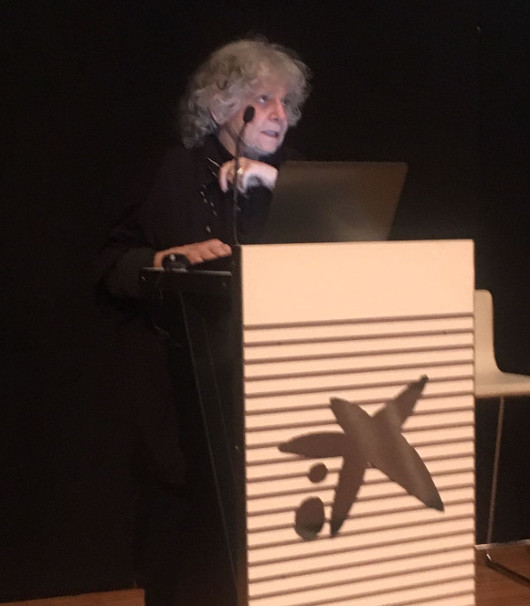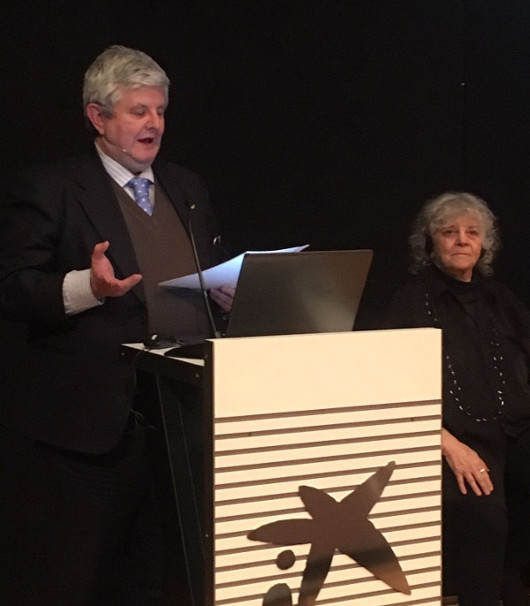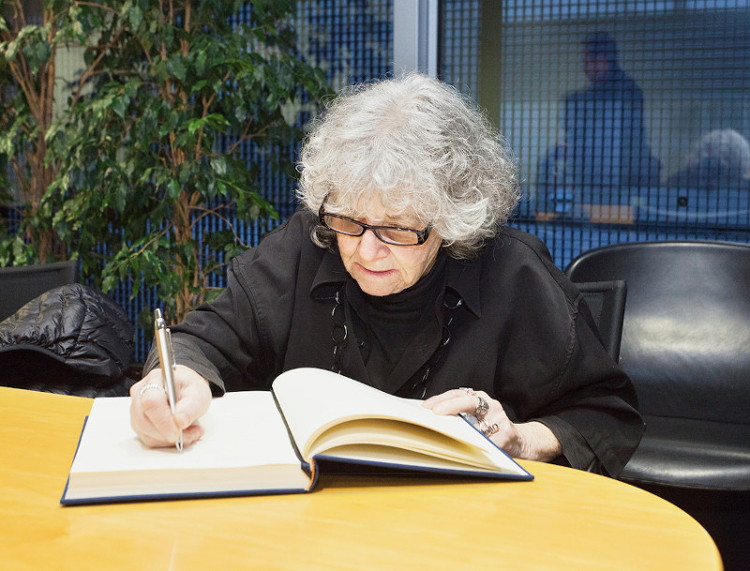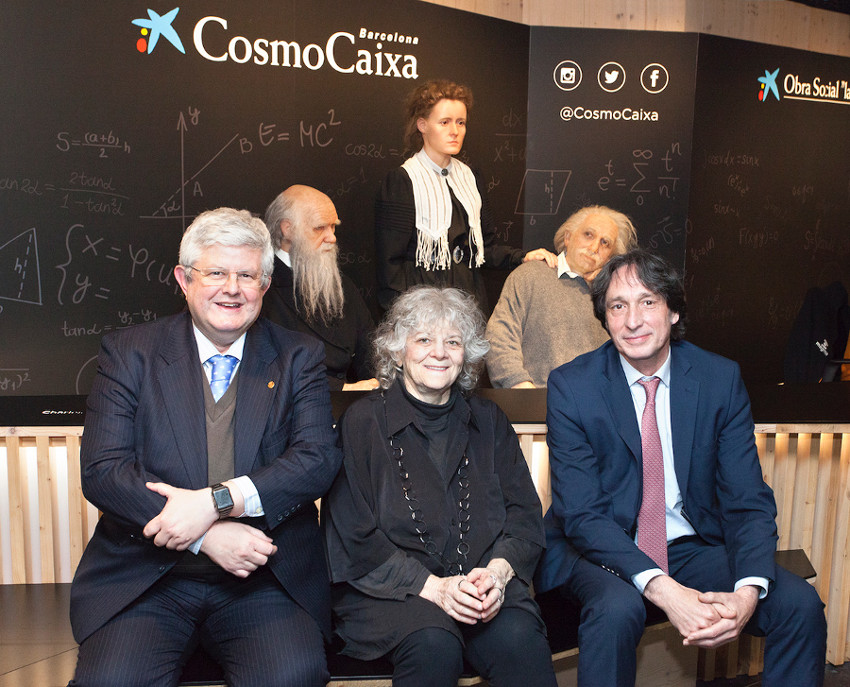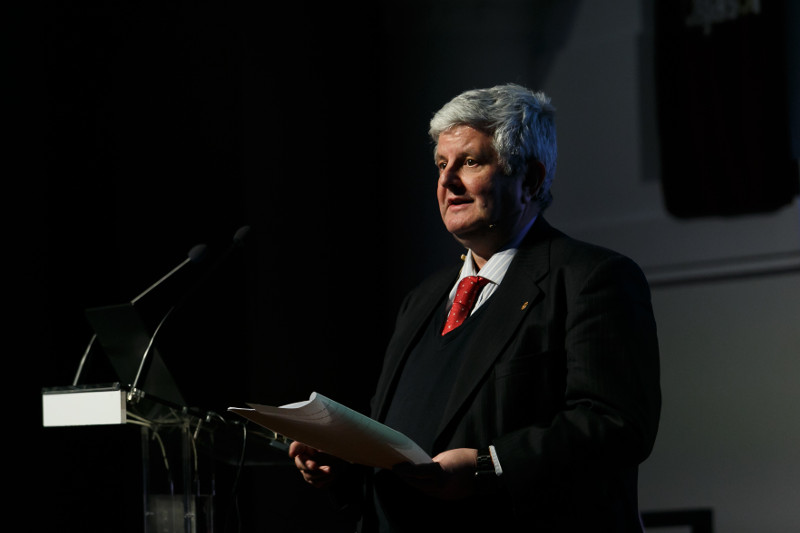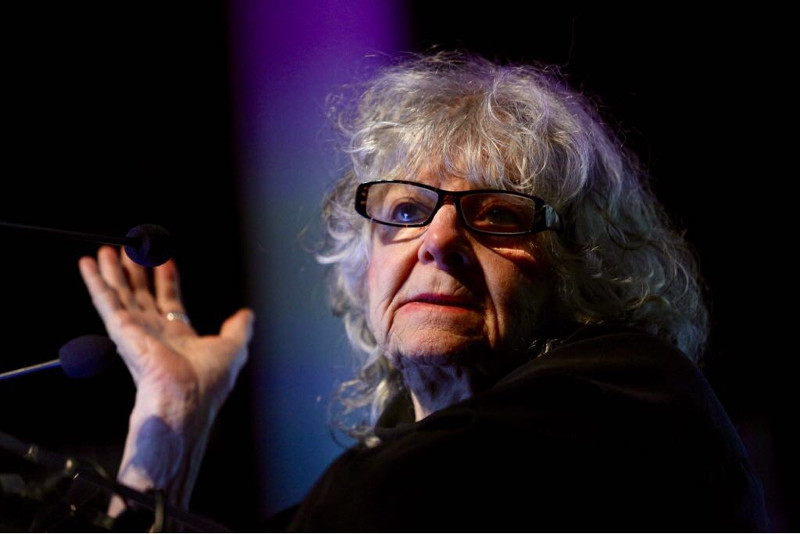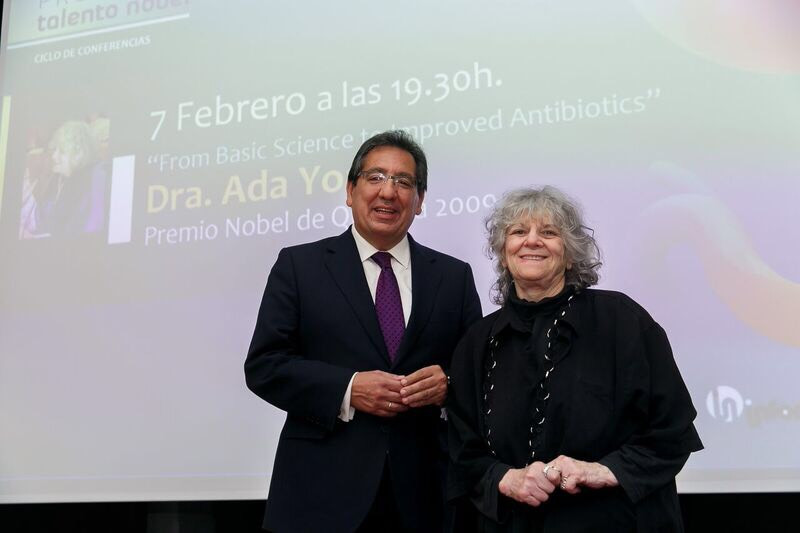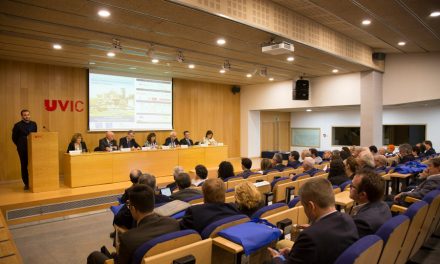About 40% of these drugs damage the ribosome of cells, responsible for the production of proteins
Ada Yonath, Nobel prize in Chemistry and honorary academician of the Royal European Academy of Doctors-Barcelona 1914 (RAED), this week has been the protagonist of the two major cycles of scientific dissemination that take place in Spain: “La ciencia vista a través de los ojos de los Premios Nobel” (Science seen through the eyes of the Nobel prizes), organized by the La Caixa Foundation at the CosmoCaixa in Barcelona, and “Talento Nobel” (Nobel Talent), organized in Seville by the Cajasol Foundation. In both cases with the active collaboration of the RAED. The Nobel has delivered the conference “From basic science to improved antibiotics”.
Yonath exposes in her speech the contradiction that the use of antibiotics supposes, an effective medicine in the combat of diseases that less than a century ago were mortal, but that damage the ribosome of the cells. Today it is considered that almost 40% of antibiotics continue to act attacking the mechanism responsible for the production of proteins. The honorary academician has shown how using the same mechanism can design new antibiotics that bind to the ribosome of the bacteria or the virus that causes a disease or an infection to block it. A new generation of antibiotics not only more effective, but require lower doses.
Recognized by the Nobel for her studies on the ribosome, which managed to crystallize and study thoroughly, Yonath appeals to the responsibility of pharmaceutical companies, installed in the manufacture of broad-spectrum antibiotics with market, but numerous bacteria and viruses have assimilated and already it isn’t effective, as well as the social conscience. “That one day the life expectancy will improve all over the world and not only in the developed countries, as it currently happens”, the academician says.
The cycle will continue with the participation of Erwin Neher (Nobel prize in Medicine in 1991), who on February 20 will speak on “Ionic channels: their discovery, functions and their role in medicine and pharmacology”; Richard Roberts (Nobel prize in Medicine in 1993), who on March 22 will expose “A crime against humanity”; Jerome Friedman (Nobel prize in Physics in 1990), who on April 26 will offer the talk “Are we really made of quarks?”, and Sheldon Glashow (Nobel of Physics in 1979), who will close the cycle on June 7 with the conference “Accidental discoveries in science”. For its part, the “Talento Nobel” program will conclude in Seville with Neher on February 22. In both cycles the Nobel prize in Chemistry and an honorary academician of the RAED Aaron Ciechanover has also participated.
- Dr. José Ramón Calvo
- Dr. José Ramón Calvo – Dra. Ada Yonath – Dr. Jordi Portabella
- Juan Francisco Álvarez
- Dr. José Ramón Calvo
- Dra. Ada Yonath
- Dr. Antonio Pulido – Dra. Ada Yonath


